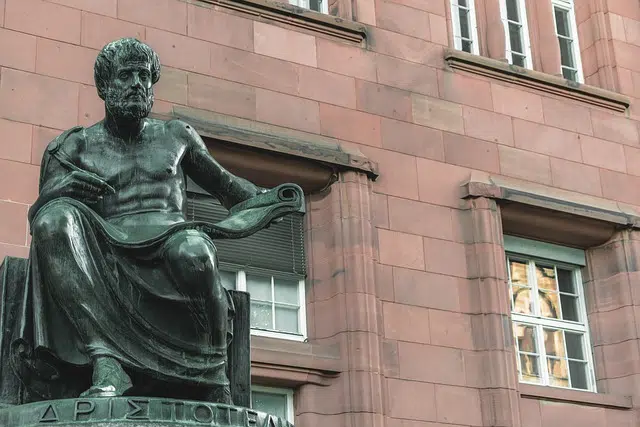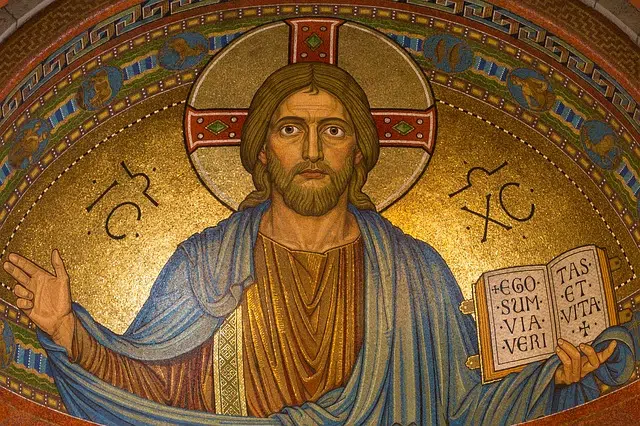
Aristotelianism is the thought of the Greek philosopher Aristotle.
The thought of the Greek philosopher Aristotle is called Aristotelianism . The term also refers to the set of subsequent movements that were based on its doctrines .
Aristotle's philosophical system
It can be said that Aristotelianism is the philosophical system of this thinker from Ancient Greece and of the disciples who maintained his postulates. It is important to mention that Aristotle 's ideas exerted enormous influence throughout the Western world.
Stages of Aristotelianism
It is common to differentiate between various stages of Aristotelianism. Ancient Aristotelianism , in this framework, includes Aristotle himself and those who attended the Lyceum (the institution where Aristotle taught, which is also known as the Peripatetic school ). At this stage we must highlight the work of Theophrastus, who systematically organized his teacher's thinking and took the Lyceum towards a direction of science and naturalism.
Also belonging to this part of Aristotelianism was Andronicus of Rhodes , an important follower of this philosophical system who carried out a critical edition of Aristotle's teachings. If we focus specifically on the field of medicine, which was part of the scientific branch of Aristotelianism, we cannot stop talking about Galen , just as Claudius Ptolemy was essential for astronomy. Finally, in reference to the agent intellect (the formal representation of the intellect), the prominent figure was Alexander of Aphrodisias .
In medieval Aristotelianism , meanwhile, we find Christian Aristotelianism and Arab Aristotelianism . Christian Aristotelianism was promoted by Thomas Aquinas and Albertus Magnus , after Aristotelian physics and metaphysics were banned in the early 11th century. Magnus and Aquinas tried to offer a point of view that was consistent with the precepts of the Christian religion. Returning to Arab Aristotelianism, it had exponents such as Averroes and Avicenna . The first did everything possible to recover authentic Aristotelianism and proposed an interpretation of the agent intellect independent of individual souls. Averroes, for his part, fused Neoplatonism with the philosophy of Aristotle.
The third stage occurred during the Renaissance, where more translations of Aristotle's work appeared. However, it suffered a crisis that coincided with the arrival and growth of new science. Jacobo Zabarella , Martín Nifo , Cesar Cremonino and Pietro Pomponazzi are thinkers that we can highlight from that crucial time for Aristotelianism. Closer in time, Aristotelianism discovered allies in Catholic philosophers such as Paul Vignaux , Jacques Maritain and Étienne Gilson . They were responsible for having vindicated the Aristotelian-Thomist ideas from a vision that respected the Christian ones, and everything arose from their study at the University of Leuven, when they carried out a deep study of the concepts.
Reason and other concepts
It should be noted that, for the most conservative sectors of Catholicism, Aristotelianism is dangerous. This is because it gives preponderance to reason over divine revelations.
If we analyze certain characteristics of Christian Aristotelianism we can easily notice some fundamental points in which its followers sought a conciliation with Christianity . If we think about two concepts that oppose Averroism, we can say that Christian Aristotelianism considered that the soul was immortal and that the world was not eternal.

Christian Aristotelianism reconciled the ideas of both parties
Regarding the points of view opposed to those of Augustinianism, there are the following: the understanding is above the will ; reason has predominance over intuition; Enlightenment is not necessary to achieve the truth, but reason is enough; Faith is clearly differentiated from reason.
It can be noted that, among the main concepts of Aristotelianism, nature appears as the essence of natural beings that causes their rest or movement. Aristotle also reflected on the soul as a principle of life and on virtue as that which allows an entity to achieve its goal, for example.
